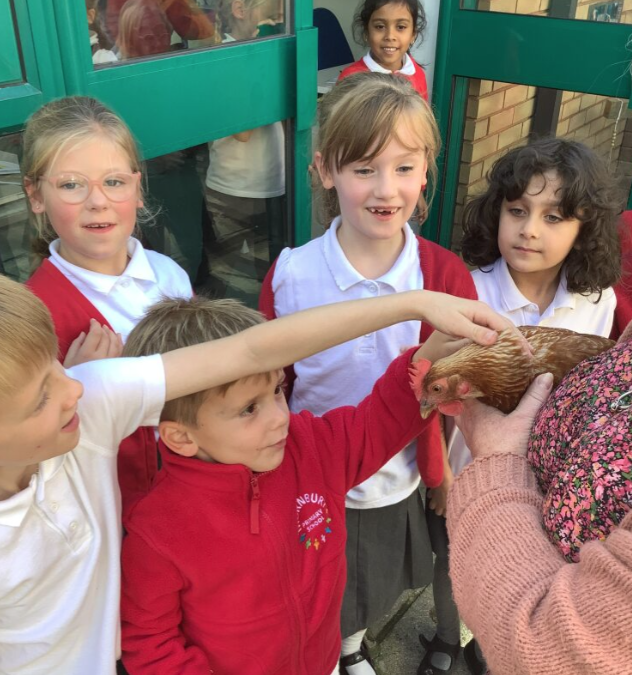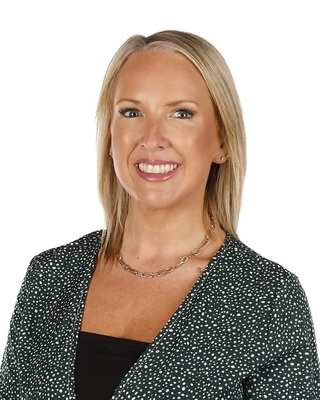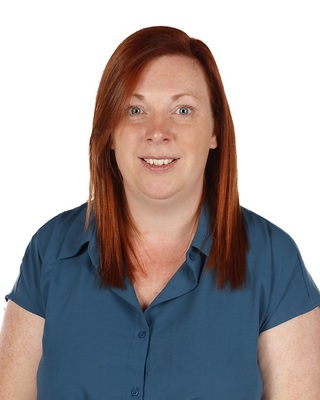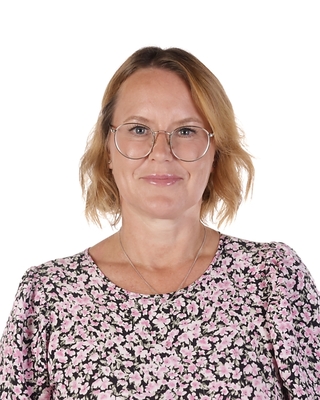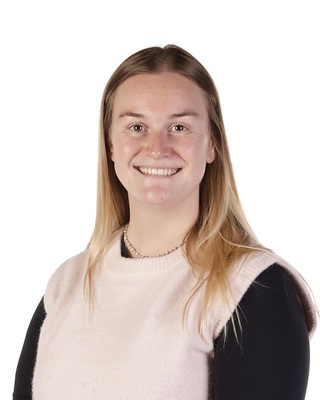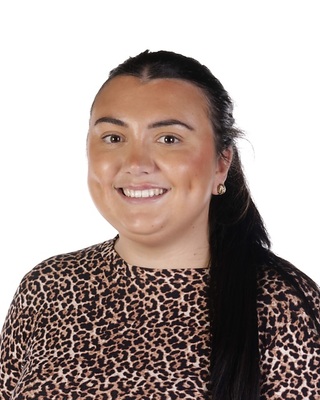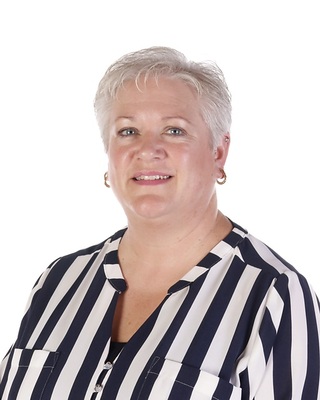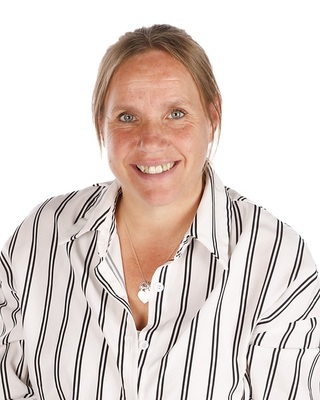About this class
Year 2
In Year 2, children continue to develop themselves and their areas of interest as we deepen our learning within a broad and balanced curriculum. If you would like to contact your child's class teacher, you are welcome to talk to them at drop off and pick up times or contact them at the school email address.
General Information
What do I need to bring to school?
Book Bag
All children require a book bag which they will need to bring every day.
Water bottle
All children to bring a clear plastic, medium sized, bottle of water. Please can we ask for no metal bottles.
Fruit & Snack:
All children in Year 2 are provided with one piece of fruit per day. However, children are invited to bring a piece of fruit from home for their morning playtime snack if they wish.
Milk
If you would like your child to have a carton of milk at snack time, please order this through www.coolmilk.com.
Important information
PE Days:
- Monday
- Wednesday
Children will come to school in their P.E kits on P.E days. Please ensure earrings are out or taped up before they come to school, and long hair is tied back.
Reading & Phonics
We are passionate about children learning to read; we ask that families read with and hear their children read at least 5 days a week and record this by signing their child’s reading record.
Reading books will be changed: Thursday
All children will have phonics lessons every day. We follow the ELS scheme (Essential Letters and Sounds) for more information please see our Literacy page.
Home learning
Following parent and carers feedback, we now send home a Homework Grid three times a year (Autumn, Spring and Summer terms). The grid includes: Weekly spelling, Reading advice and Maths activities. Alongside this, we share an overview of cross-curricular activities for the term. These give children the opportunity to choose which tasks they would like to complete. We set dates for when any completed work should be returned, and children are then given the chance to showcase their learning.
Spellings will be tested on a Monday.
Online Resources:
You will find your login details for the following site at the front of your reading diary.
My Maths: www.mymaths.co.uk
NumBots: www.numbots.com
Curriculum- Yearly overview of topics
Topics Covered Throughout the Year:
Autumn Term:
Maths –
In maths this term, we are starting by learning about the place value of numbers to 20. We will gain confidence with the composition of these numbers, before comparing, ordering and putting them on a number line. After this we will move onto addition and subtraction within 20. This unit begins with us exploring and solidifying our number bonds to 10 and 20. We will use this knowledge to bgin adding, up to three 1-digit numbers. We then practice taking away, using the vocabulary “how many left?” and finding the difference. We then revisit a place value unit, exploring numbers up to 100. We will group and partition a range of numbers into tens and ones, and then will compare, order and plot these numbers on a range of number lines. We will finish up the autumn term by exploring 2D and 3D shapes: counting sides and vertices, identifying lines of symmetry, sorting 2D and 3D shapes and spotting patterns in different shapes.
Literacy -
This term in literacy, we’ll begin by exploring emotions through The Feelings Book by Todd Parr. This fun and colourful book helps us identify and express different feelings, laying the groundwork for emotional awareness and vocabulary.
Before half-term, we’ll read Augustus and His Smile by Catherine Rayner. This beautifully illustrated story follows Augustus the tiger as he searches for his smile, teaching us about happiness and perspective. We’ll also explore the structure of non-chronological texts as we connect it to our theme Just Like Me, Just Like You.
After half-term, we’ll read Mixed-Up Fairy Tales by Hilary Robinson, where classic fairy tales are turned upside down with surprising twists. This connects perfectly to our King and Country theme, encouraging creativity as we write our own mini fairy tales in three parts.
Next, we’ll enjoy Oi Frog! by Kes Gray, a fun book about animals and rhyming words. This will help us build confidence in using rhyme as we write our own silly rhyming sentences inspired by the book.
Finally, we’ll prepare for our Christmas performance, focusing on our oracy skills as we practice speaking clearly and confidently in front of an audience.
Science -
We will begin by exploring the question: "Humans are an animal – am I right?" We will learn about the human body, identifying and naming different body parts and linking them to the five senses. We’ll explore how humans grow and change, compare this to the offspring and life cycles of other animals, and discover what all animals, including humans, need to survive. We’ll also learn about how to look after our bodies and stay healthy through good hygiene, exercise, and diet. In the second half of the term, we will focus on answering the question: "How can we group animals to help us understand them better?" We will sort living and non-living things, group animals based on their characteristics, and identify the structures of common animals such as mammals, birds, fish, reptiles, and amphibians. We will continue to explore life cycles and observe how different animals grow and develop. Throughout the term, we will also study the changing seasons, noticing how autumn gradually turns into winter and what changes take place in the natural world around us.
Art -
In Autumn Term 1, we will be learning about Drawing and Painting by creating self-portraits. We will look carefully at our own faces and notice different features, like our eyes, nose, and mouth. We will use pencils, crayons, and paints to draw and paint our portraits, thinking about shapes, lines, and colours. This will help us learn how to observe carefully and express ourselves through art.
Geography -
In Geography for Autumn Term 1, we are learning about the question: Where do I live in the world? We will find out about our local area, our country, and the different parts of the world. We will learn the names of the countries in the United Kingdom, the surrounding seas, and look at maps and globes to see where we live. We will also learn about the continents and oceans. By the end of the topic, we will understand more about our place in the world and how it connects to other places around us.
History -
After half term in History, we will be exploring the question: How was life different in the time of Queen Elizabeth I and Queen Elizabeth II? This topic will involve comparing key aspects of life during the reigns of these two monarchs, including daily life, technology, society, and significant events. By investigating the differences and similarities between the Elizabethan era and modern times, we will gain a deeper understanding of how life in Britain has changed over the centuries.
PSHE -
In PSHE, we use the Kapow scheme. We explore various areas of personal development, social development, physical and mental health, as well as economics. We teach the children that everyone is different and we are accepting of those differences.
In the first half of Autumn term, we will explore ‘Health and Wellbeing’. We will look at how to understand feelings, relaxation with laughter and progressive muscle relaxation, what are we like as individuals, how to get ready for bed, handwashing and personal hygiene, sun safety, allergies and people who help us to stay health.
In the second half of the Autumn term, we will explore ‘Families and Relationships’. We will learn about families and friendships, that families are all different, other people’s feelings, how to get along with others, how to deal with friendship problems and gender stereotypes.
RE -
In RE, we explore a range of beliefs and ideas. We teach the children that everyone has their own beliefs and we accept and respect that everyone’s ideas are different to their own.
In the first half of the Autumn term, we will be asking ‘What does it mean to belong to a faith community?’. We will focus on Christianity, Judaism and Islam. As well as this, we will explore this topic through a non-religious perspective. We will learn what the differences between weddings and welcome ceremonies are in different faiths and what the words ‘community’ and ‘belonging’ mean.
In the second half of the Autumn term, we will be asking ‘Why does Christmas matter to Christians?’. We will explore the Christmas story and why the birth of Jesus is an important part of the Christian religion. We will also be preparing and performing our annual Christmas performance alongside this topic.
PE -
In Autumn Term 1, we will be learning Net and Wall Games and Invasion Games for Year 1/2. In Net and Wall Games, we will practice skills like throwing, catching, and hitting a ball over a net or wall. We will work on our coordination, aiming, and teamwork while playing fun games. In Invasion Games, we will learn how to work together to move a ball into the other team’s area while stopping the other team from scoring. These lessons will help us improve our fitness, teamwork, and basic game skills.
In Autumn Term 2, we will be learning Team Building and Dance for Year 1/2. In Team Building, we will do fun activities that help us work together, solve problems, and communicate with our classmates. These games will help us learn how to cooperate and support each other. In Dance, we will explore movement and rhythm, creating our own dances and learning to perform with control and expression. These lessons will help us improve our coordination, creativity, and confidence in moving our bodies.
Computing -
In Autumn Term 1, we will be learning about computers and technology. We will find out what different parts of a computer do, like the keyboard, mouse, and screen. We will also start learning how to use a computer safely, including how to look after it and be careful online. We will have fun exploring how to type on a keyboard and use a mouse to click, drag, and move things on the screen.
In Autumn Term 2, we will begin learning how to create and explore digital content. This means we will use programs and apps to make pictures, simple animations, or stories on the computer. We will also start to learn how to save our work and share it with others. During this term, we will think about being kind and safe online, and how to use technology in a smart and responsible way.
Music -
In music for Autumn Term, we are learning about Fantasy and Adventure. We will listen to exciting music that tells stories about magical places and brave heroes. We will explore different sounds and instruments that help create a sense of adventure. We will also have fun making our own music to imagine our own fantasy stories. By the end of the term, we will be able to use music to take us on amazing journeys in our minds!
D and T -
Design and Technology roles on a half termly basis alongside Art. In Design and Technology, we focus on three main areas; Nutrition, Structures and Mechanisms.
In the Autumn term, we will be looking at mechanisms around transport for the king or London transport. This unit links with our History topic which we will be doing alongside. We will be looking at what modes of transport there ae in London, researching different modes of transport in London, using the research to know what materials, joins and techniques we will need, learning how to create a wheel/axel mechanism, designing, making and evaluating a mode of London transport.
Spring term
Maths –
We begin the spring term with a unit on addition and subtraction within 100. We will develop our prior knowledge by adding and subtracting to, and across, 10s. We will then add and subtract two 2-digit numbers. After this, we will complete a multiplication and division unit. Counting in 2, 5, 10 and 3s. We will recognise, make and add equal groups. We will then further explore the 2, 5 and 10x tables. After, we will spend some time exploring length and height, measuring using objects, centimetres and metres. We will then order, compare and explore the four operations with lengths and heights. We will complete a statistics unit where we will explore charts, tables and pictograms.
Literacy –
We’re kicking off the new year with How to Hide a Lion in School by Helen Stephens, a fun and imaginative story where we’ll explore creative ways to hide a lion on a school trip! Inspired by the book, we’ll write our own exciting stories about sneaking an animal along on an adventure.
Next, we’ll dive into poetry with I Love Bugs by Emma Dodd, a delightful book that introduces us to different bugs in a fun, rhythmic way. Through this, we’ll gain confidence in writing poetry and create our own descriptive poems, bringing the world of bugs to life with vivid language.
After the February half-term, we’ll explore Look Inside Space by Rob Lloyd, a fascinating non-fiction book that takes us on a journey through the wonders of space. We’ll use this to help us write an informative page spread on a topic of our choice, complete with questions and answers to share our newfound knowledge.
To round out the term, we’ll read Little People, Big Dreams, which introduces us to inspiring figures from history. This book will spark our own writing as we craft a biography of someone who has made a positive impact on the world.
Science -
We will start the spring term by exploring the question: "Why do animals live in different places?" We will investigate a variety of habitats, beginning with those in our school grounds and extending further afield. As part of this, we will revisit what animals need to survive, identify how different animals are suited to their environments, and describe the differences between habitats and microhabitats. In the second half of the term, we will focus on answering the question: "What do animals need to survive?" We will learn about what different animals eat, how we can group them based on their diets, and create simple food chains to show how energy flows from one organism to another. We will also learn about the work of the renowned scientist and naturalist Sir David Attenborough, and how he has helped us understand and protect the natural world.
Throughout this term we will also explore the signs of spring blooming around us.
Art -
In Spring Term 2, we will be learning about Mixed Media by exploring the work of the artist Brian Pollard. We will use lots of different materials, such as paper, fabric, and paint, to create our own artwork inspired by his style. We will experiment with combining textures, colours, and shapes to make our pieces interesting and unique. This will help us learn how to be creative and try new ways of making art.
Geography -
In geography for Spring Term 1, we are thinking about the question: What is the geography of where I live? We will go on a walk around our local area to look at the buildings, roads, parks, and other places we see every day. We will learn to spot different features like houses, shops, and schools. We will also visit the local library to find out more about our community. By the end of the topic, we will know more about where we live and be able to talk about what makes our area special.
History -
In history for Spring Term 2, we are learning about the question: Why is space travel so important? We will find out about the first people to go into space and the first landing on the Moon. We will learn about rockets, astronauts, and the exciting journey into space. We will also talk about how space travel has helped us learn more about Earth and the planets. By the end of the topic, we will understand why going into space is such a big and important adventure!
PSHE -
In the first half of the Spring term, we will continue to explore ‘Families and Relationships’. Once completed, we will learn about ‘Safety and the Changing Body’. This will take up the rest of the Spring term. In the unit, we will look at how to communicate with adults, who keeps us safe in our local community, safety with medicine, how to make a call to the emergency services, the difference between secrets and surprises, appropriate contact, understanding that my parts are private and respecting personal boundaries.
RE -
In RE during Spring 1, we will be exploring the question: Who do Christians say made the world? In this topic, we will learn about Christian beliefs about creation. We will look at the Bible’s creation story and think about how Christians believe God is the Creator of the world. We will also reflect on the beauty of nature around us and consider how people can look after the world.
As part of this topic, we will also have the opportunity to listen to a visiting speaker, who will share their own experiences and beliefs. This will help us to understand what Christians believe in real life and give us a chance to ask thoughtful questions.
In Spring 2, we will move on to the question: What do Christians believe God is like? In this topic, we will learn about how Christians describe God’s character. We will explore Bible stories that show how God is loving, forgiving, and caring. This will help us understand why Christians trust in God and how their beliefs influence the way they live their lives.
PE -
In Spring Term 1, we will be learning Fundamentals and Gymnastics for Year 1/2. In Fundamentals, we will practice basic movement skills such as running, jumping, hopping, balancing, and changing direction. These activities help us develop control, coordination, and confidence in moving our bodies. In Gymnastics, we will explore different shapes and movements, including rolls, jumps, and balances. We will learn how to link movements together safely and creatively, improving our strength, flexibility, and body awareness.
In Spring Term 2, we will be learning Fitness and Target Games for Year 1/2. In Fitness, we will take part in activities that help us get stronger, faster, and healthier. We will practice exercises that improve our stamina, strength, and coordination, and learn how to keep our bodies active. In Target Games, we will practice aiming and throwing at targets using balls and other equipment. These games will help us improve our accuracy, hand-eye coordination, and teamwork while having lots of fun.
Computing -
In Spring 1, we will be learning about Programming A – Moving a Robot. We will explore how to give instructions to make a robot move in the way we want. We will practice planning and testing our instructions, learning that computers and robots need very clear steps to follow. This will help us understand how programming works and why it is important to be precise when we give instructions.
In Spring 2, we will continue with Programming A – Robot Algorithms. We will learn how to use sequences of instructions, called algorithms, to make a robot complete a task. We will try out our own ideas, test them, and see how small changes can make a big difference. This will help us think like a programmer and understand how computers follow steps to solve problems.
Music -
In music for Spring Term, our topic is Jupiter, linked to our overarching theme, To Infinity and Beyond. We will listen to music that takes us on a journey through space, imagining what it might be like to travel to Jupiter and beyond. We will explore how different sounds and instruments can create the feeling of flying among the stars and planets. We’ll also create our own space-inspired music, using rhythms and melodies to tell stories about adventure and exploration in the universe. By the end of the term, we will have travelled through space with music, all the way to Jupiter and beyond!
DT -
In the Spring term, we will be looking at structures, creating a shelter for hibernating animals/an alien in a pre-decided climate or habitat. This unit links with our Science topic which we will be doing alongside. We will be looking at what a shelter is, research different types of shelters, using research to decide what materials, joins and techniques to use, to design, make and evaluate a shelter which meets the criteria.
Summer term:
Maths –
We will begin the summer term with a unit on money, where the children will learn to recognise and count coins and notes, compare different amounts, and work out change in simple transactions. Our learning will then move on to fractions, focusing on understanding parts and wholes, identifying equal and unequal parts, and recognising and finding halves, quarters, thirds and three-quarters of shapes and quantities. We will also spend time exploring time itself, learning about the days of the week, months of the year, and units such as hours, minutes and seconds. The children will begin to tell the time to the hour, half past, and quarter past/to the hour. Later in the term, we will be working on mass, capacity and temperature. This will involve measuring weight in grams and kilograms, capacity in millilitres and litres, and exploring temperature using thermometers. To finish the term, we will focus on position and direction. The children will describe movement, use directional language, and understand and describe quarter turns, half turns and full turns.
Literacy –
We are beginning the summer term with Stella and the Seagull by Georgina Stevens. This is a non-fiction text that tells the story of Stella, a young girl who learns how small changes can make a big difference to the environment. Through this book, children will develop their reading comprehension skills, learning to identify key facts, make predictions, and discuss how we can look after our world. In writing, the children will practise recording information in full sentences, using correct punctuation, and explaining their own ideas with clarity. We will also link this learning to our wider topic work on caring for nature and protecting our planet.
Our next text will be A First Book of the Sea by Nicola Davies, a beautifully illustrated poetry collection that captures the magic, mystery, and power of the ocean. This text will help children explore rhythm, rhyme, and descriptive language. We will read and perform poems aloud to build confidence in speaking and listening. The children will also create their own sea-themed poetry, choosing a creature we have learnt about, and using rich vocabulary and imagery to bring it to life. This unit will encourage creativity while also helping the children to use adjectives, similes, and alliteration in their writing.
After the May half term, we will move on to Traction Man is Here! by Mini Grey. This is a fun and imaginative story about an action figure who goes on exciting adventures in everyday places. The children love this text, and it provides the perfect opportunity to develop narrative writing skills. We will plan and write our own extended and more complex versions of Traction Man’s adventures, focusing on adding detail, sequencing events clearly, and using a wider range of sentence types. This unit will also give children the chance to build characters and settings with ambitious vocabulary, encouraging them to take creative risks in their writing.
Finally, we will finish the year with Zim Zam Zoom! by James Carter, a lively and playful collection of poems written especially for younger readers. This text will introduce the children to a range of poetry forms and inspire them to write their own. In particular, we will create kenning poems, which are fun, descriptive poems made up of short, two-word phrases. Our theme will be “space,” so children will use their imaginations to describe rockets, planets, and stars in new and exciting ways. This final unit will allow the children to celebrate everything they have learnt about language and creativity across the year, ending on a high.
Science -
Throughout the summer term, we will be diving into an exciting topic — the ocean! Our learning will focus on the question: "How does life in and around an ocean habitat depend on water?" As part of our exploration, we will be going on a trip to Wembury to study local marine life and discover where rock pools can be found. We’ll investigate the plants and animals that live in rock pools and learn how they get their energy. We will then turn our attention to coral reefs, asking: "How does life in and around a coral reef depend on water?" We will explore where coral reefs are found, what lives there, and how the plants and animals of the Great Barrier Reef are specially adapted to survive in this unique environment. We’ll also consider the impact humans are having on coral reefs and why it is important to protect them. Finally, we will compare three very different habitats — rock pools, coral reefs, and the icy environment of Antarctica — to understand how life adapts to different conditions around the world.
Throughout this term, we will also identify signs of summer and compare the differences between the 4 seasons.
Art -
In Summer Term 1, we will be learning about Sculpture by exploring the work of Barbara Hepworth. We will use different materials, such as clay and playdough, to make our own 3D artworks. We will think about shapes, textures, and how to join and shape materials to create our sculptures. This will help us learn how to work with our hands and explore art in a new, exciting way.
Geography -
In geography for Summer Term 1, we are learning about the question: Why do we love being beside the seaside? We will find out what makes the seaside special and why people enjoy visiting the beach. We will go on a trip to the beach to explore and do a survey to ask people what they like about the seaside. We will also investigate the different things we can find at the beach, like sand, seashells, and sea creatures. By the end of the topic, we will understand why the seaside is such a fun and happy place to be.
History -
In history for Summer Term 2, we are finding out about a famous person from the past: Sir Francis Drake. We will be asking the question: Was he a brave explorer or a sneaky pirate? We will learn about his exciting sea journeys, the ships he sailed, and the treasures he found. We will also find out what people thought about him at the time—some thought he was a hero, and others thought he was a pirate! By the end of the topic, we will decide what we think about Sir Francis Drake and why he is remembered today.
PSHE -
In the first half of the Summer term, we will explore ‘Citizenship’. In this unit, we will look at how people can be similar yet different to us, the feeling of belonging, job roles within our community, our school environment and our local environment.
In the second half of the Summer term, we will explore ‘Economic Wellbeing’. In this unit, we will look at money, the difference between needs and wants, looking after money, banks and building societies and the different jobs out in the world. We will also have a session about ‘Transitions’, to support the children moving from Year 1 to Year 2 and the children moving from Year 2 to Year 3.
RE -
In the Summer Term, we will be learning all about Islam by asking the question: Who is a Muslim and how do they live? We will find out that Muslims believe in one God, called Allah, and we will learn about some of the special ways they show their love for God. For example, we will discover how Muslims pray, how they look after others, and why their faith is important in their everyday lives.
We will look at some of the things that are special to Muslims, such as the Qur’an (their holy book), and talk about how it helps to guide them. We will also learn about special times in the Muslim calendar, like Ramadan and Eid, and think about why these celebrations are important.
As part of our learning, we will meet a visiting speaker who is a Muslim. They will tell us about their life and what their faith means to them. This will give us the chance to ask questions and learn more about what it is like to be a Muslim today.
PE -
In Summer Term 1, we will be learning Sports Day Preparation and Multi-Skills for Year 1/2. In Sports Day Preparation, we will practice running, jumping, and throwing to get ready for our sports day events. We will learn how to take part in races and challenges safely and fairly and have fun competing with our friends. In Multi-Skills, we will take part in a variety of activities that help us improve our balance, coordination, and control. These lessons will help us get fitter, more confident, and ready to enjoy all kinds of sports and games.
In Summer Term 2, we will be learning Sending & Receiving and Striking & Fielding for Year 1/2. In Sending & Receiving, we will practice throwing, catching, and passing different types of balls and equipment. These activities will help us improve our hand-eye coordination and teamwork. In Striking & Fielding, we will learn how to hit a ball and then work with our team to stop the other team from scoring. These lessons will help us develop our skills, work together, and have lots of fun playing games.
Computing -
In Summer 1, we will be learning about Digital Writing. We will use computers and tablets to create our own stories and texts. We will practice typing, changing fonts, adding pictures, and editing our work to make it look exactly how we want. This will help us learn how to use digital tools to share our ideas clearly and creatively.
In Summer 2, we will explore Digital Music. We will use technology to create and explore sounds and music. We will experiment with different notes, rhythms, and instruments on digital devices to make our own compositions. This will help us understand how computers can be used for creativity and how music can be made in fun and exciting ways.
Music -
In music for Summer Term, our topic is Superheroes, linked to our overarching theme of Explorers. We will listen to music that helps us imagine brave heroes who explore new places and go on exciting adventures. We will discover sounds and rhythms that make us feel strong and courageous, just like superheroes on a mission. We’ll also create our own music to tell stories about superhero explorers and their amazing journeys. By the end of the term, we will understand how music can bring explorer adventures to life and make us feel ready to explore the world!
DT -
In the Summer term, we will be looking at nutrition, making smoothies using different fruits from different places. This unit links with our History topic which we will be doing alongside. We will be looking at what a smoothie is, researching different smoothies, exploring different flavours, evaluating the samples of smoothie, determine the flavours in the sample smoothies, design, make and evaluate a homemade smoothie which meets the criteria for the unit.
